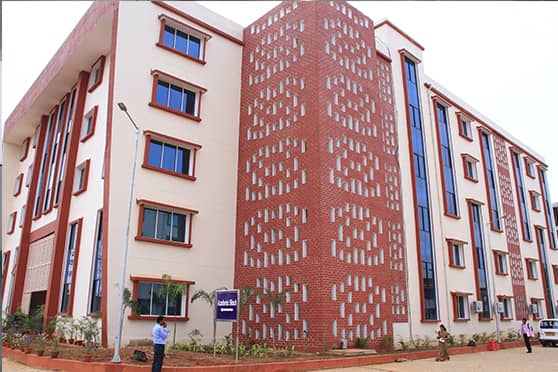A poor tribal girl's journey to becoming a national-level volleyball player


Scheduled Tribes constitute 22.8% of the total population of Odisha. Considering India is the second largest populous country in the world, the tribal population is very large. Somehow, they have not been able to reap the benefits of the developmental programmes and are often at the receiving end of social injustice. The tribal hinterlands of Odisha are part of the infamous red corridor infested with Maoist extremism and violence. Large-scale poverty, illiteracy, backwardness and ignorance have contributed to the area becoming a happy hunting ground for Maoists.
Way back in the early Nineties, when the Kalinga Institute of Social Sciences (KISS) was established by the visionary social activist Achyuta Samanta, it was thought that education could only serve as a game-changer to bring these indigenous deprived people out of the quagmire of poverty, hunger, and illiteracy. This resulted in the establishment of KISS in 1992-93 with a modest approach. This has grown into a Deemed to be University. The challenges have not ended even after running the Institution for nearly three decades.
After a more-than-three-decade-long glorious journey, Samanta doesn’t require an introduction. From negotiating the arduous early years, today he has become a great rallying point for people at home and abroad.
KISS stands out like a symbol of Samanta’s tenacity and determination. Currently, he is a Lok Sabha MP. Besides education and tribal uplift, healthcare and rural development, he has contributed immensely to art, culture, literature, film, media, society and national integration. His contribution to the field of sports is immense, right from the grassroots to international victory podiums. The enormity of the man can hardly be explained on paper.
Besides KISS, Samanta also founded the Kalinga Institute of Industrial Technology (KIIT) and both educational institutions have achieved global repute and recognition. KIIT is an Institution of Eminence and one of the most prominent universities in India and across the globe for professional education having more than 30,000 students from all over India and 65 other countries. KISS is home to 60,000 indigenous children, all absolutely free.
KISS marches ahead overcoming bottlenecks such as language barriers, dialect, superstition and alienation of communities from which the children come. Moreover, KISS has been instrumental in luring young people away from left-wing extremism, which has been a major stumbling block in the path of developmental activity in the state.
This is the story of Pupren Oram, a student of KISS who faced Maoist violence, her struggle to survive and how she carved out a future for herself despite mighty obstacles.
Pupren was born to a poor tribal farmer in the remote Mahupada village, surrounded by dense forests, of Banai subdivision in the Sundergarh district of Odisha. The small family of three children and parents somehow used to eke out a living amid the sal forests and jungle streams. But Pupren dreamt of education and self-reliance.
Amid these trials and tribulations, the worried parents could never think of giving their wards a peaceful life. At this crucial juncture, Pupren’s mother came to know about KISS and could gather the courage to send her daughter for admission. The enabling environment nourished Pupren. Today she is a post-graduate student of KISS-DU. She has obtained vocational skills in addition to studying the regular curriculum. Moreover, she is a national-level volleyball player.
Today she reminisces with sorrow that when she visited her native village in 2010 after playing as the captain, her family was ravaged by the extremists and her father was killed. Somehow, she escaped the marauders and could come back to KISS alive. Today, she tries to forget all these nightmares and is determined to continue her journey in the path of progress with KISS by her side and dreams of a better future.
She hopes to live a good life and give back to her community, being inspired by Samanta. KISS has been carrying out its good work with determination, willpower and hard work. This has created a major impact on the lives of the tribal people. It has promoted holistic/ vocational education, entrepreneurship, belief in scientific temper, women’s empowerment, sustainability, student dropout, arresting child marriage and overall Left-wing violence and extremism.
As the largest exclusive tribal university in the world, it vouches to carry out research, tribal studies, preserve traditional tribal ethnicity and wisdom and promote local start-ups for employment generation in the tribal hinterland of Odisha.
Young Pupren’s story is one of the many inspirational success stories that KISS has carved out in its long journey of incessant struggle against poverty, hunger and illiteracy which the world has recognised.
This article has been curated in association with Kalinga Institute of Social Sciences (KISS).